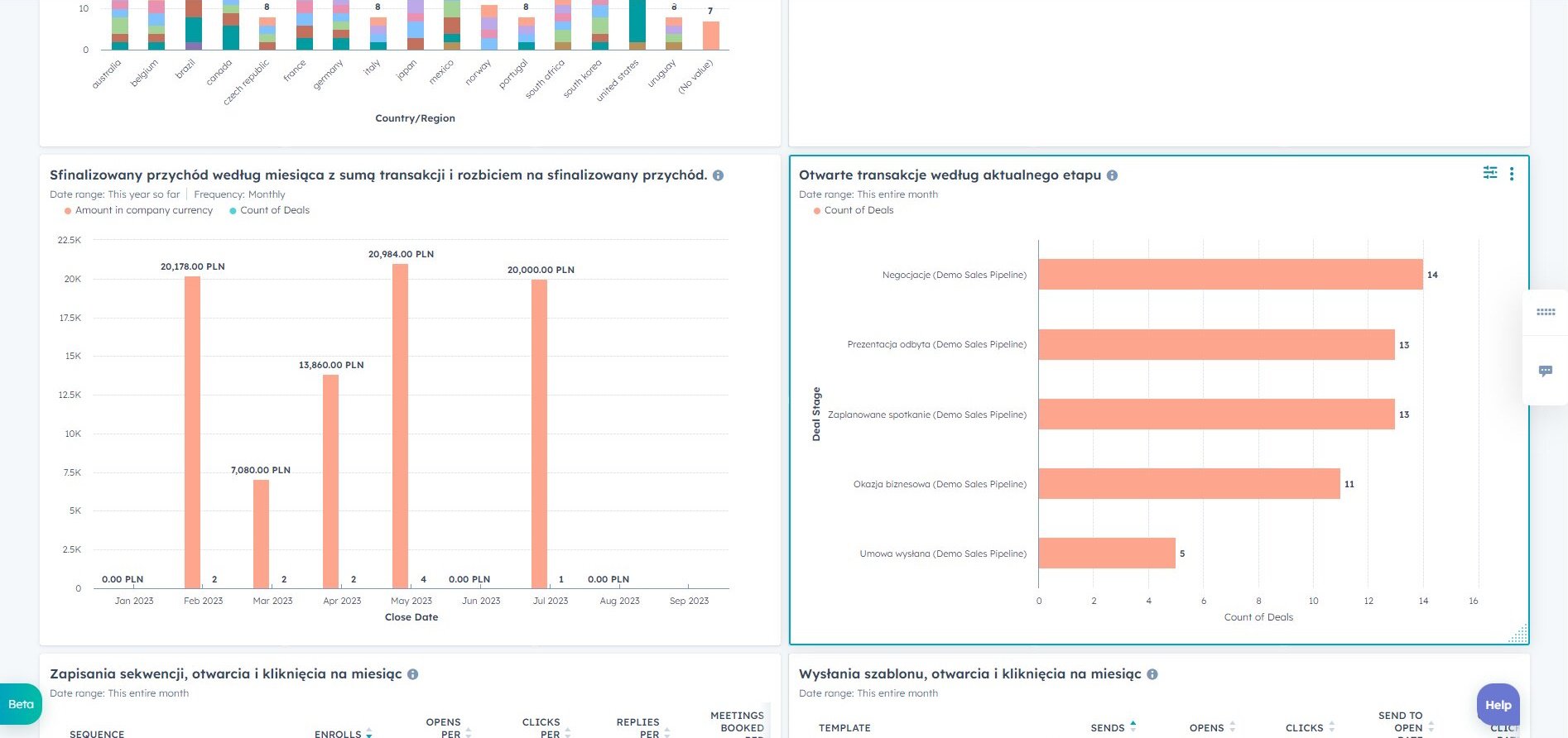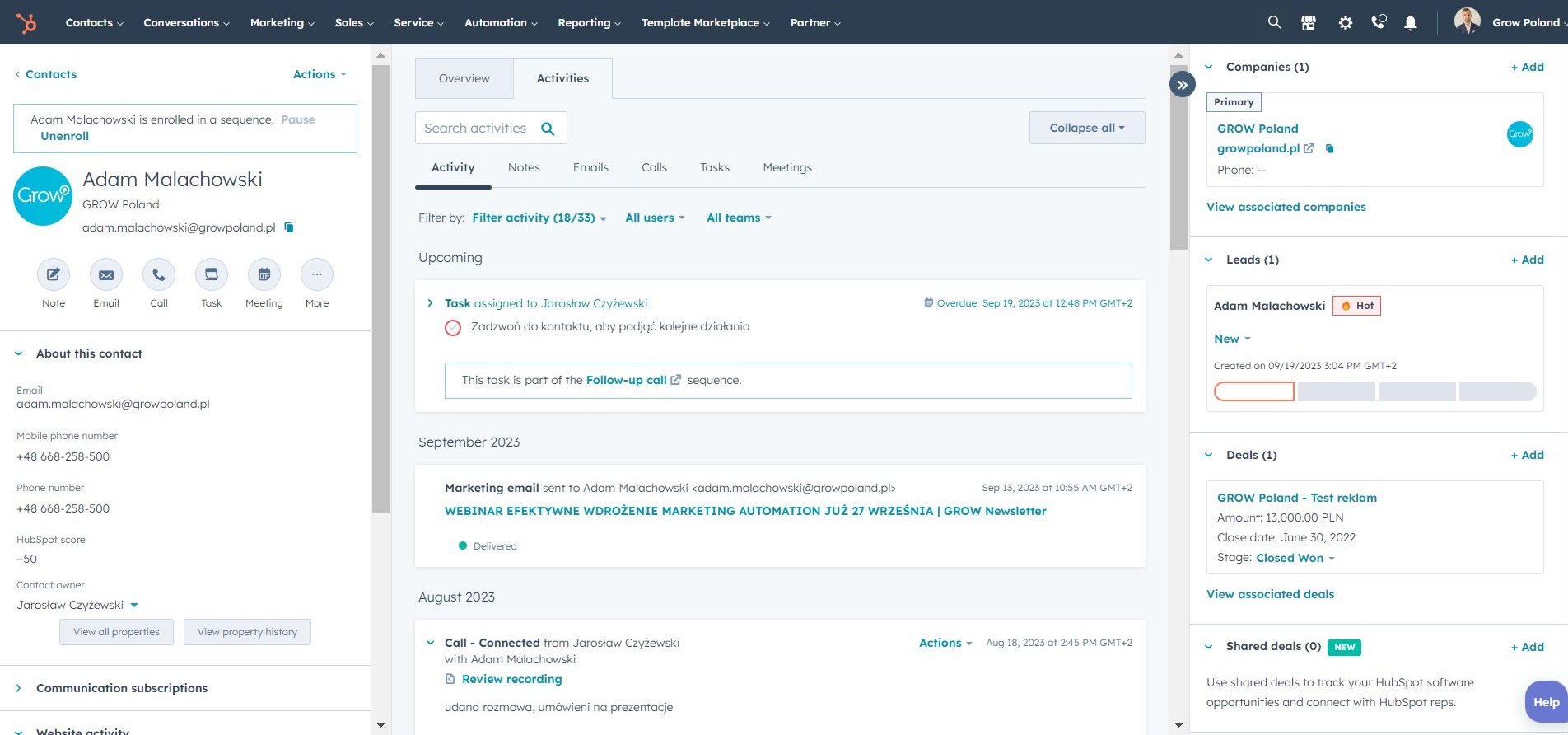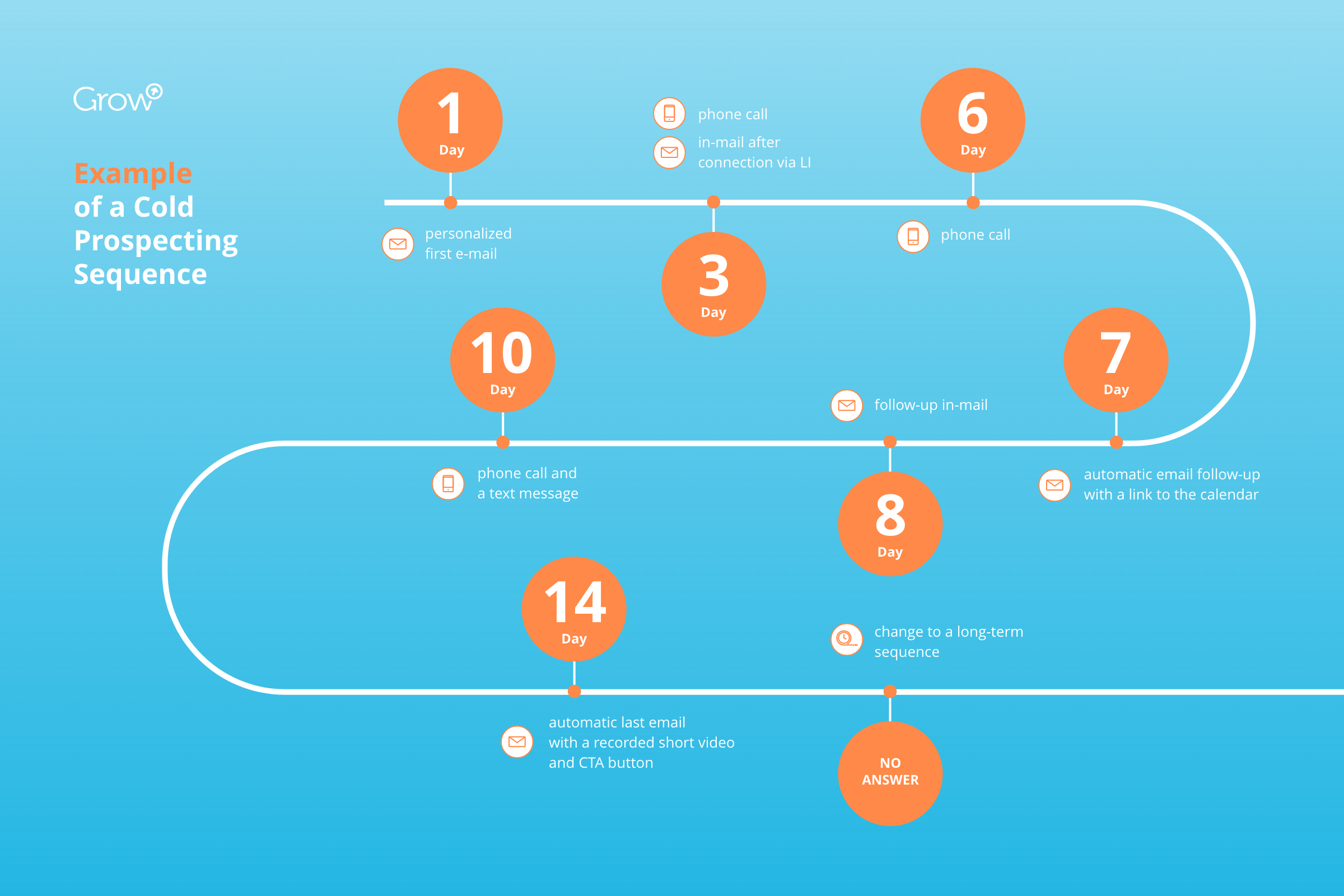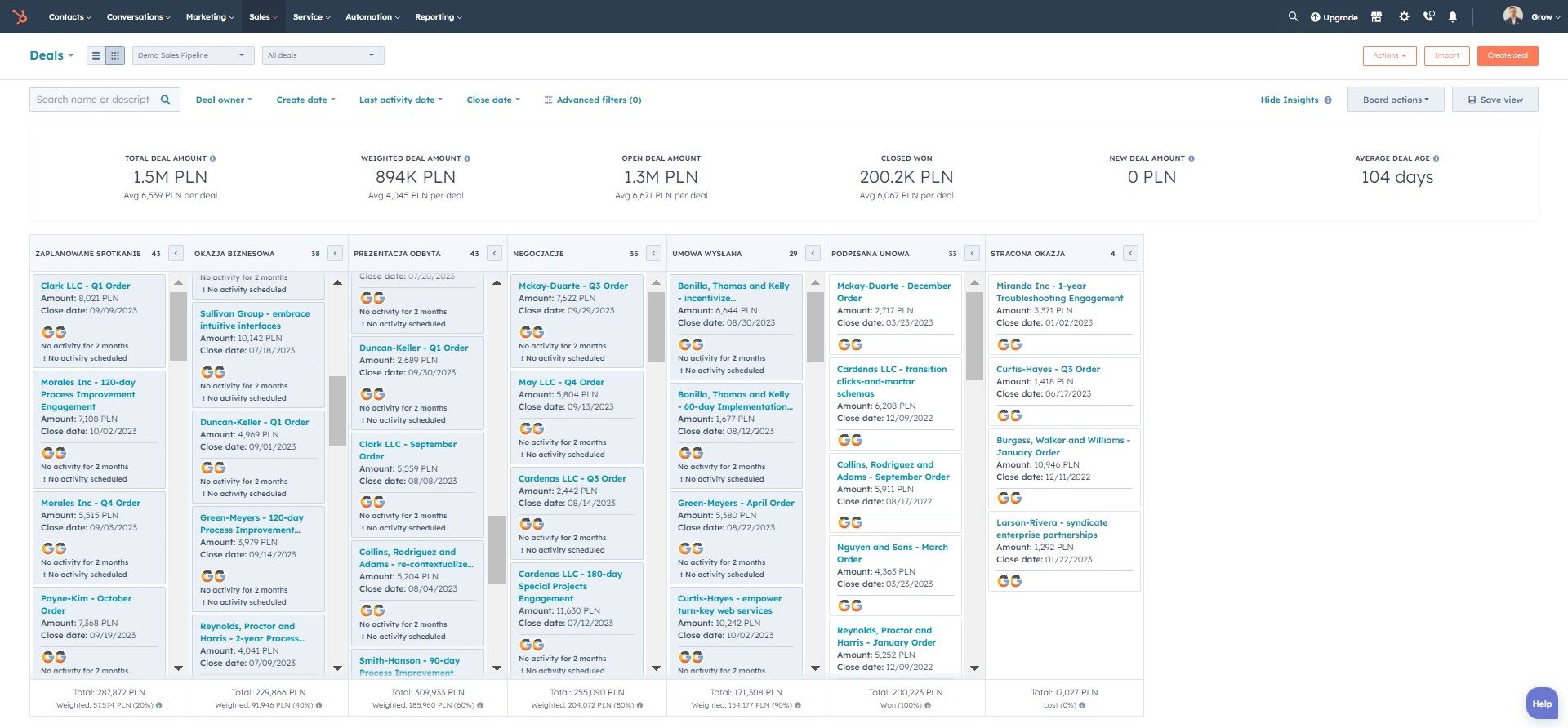CRM: Streamlining Customer Relationships for Business Growth
Have you come across the term CRM and want to know exactly what it means? Are you curious about what it can do for you? Are you wondering if this solution is right for you? In this article, I've summarized the basic knowledge about CRM systems.
What is CRM?
CRM stands for Customer Relationship Management, which refers to managing customer relationships. CRM is a strategy and a set of systems (CRM platforms, CRM systems) that allow businesses to effectively manage interactions with their customers.
CRM software enables the collection and analysis of customer data, which helps in better understanding their needs and preferences. It also allows for the automation of business processes, leading to increased productivity and efficiency within the company. Consequently, CRM can contribute to increased sales and the growth of your business.
What are the functions of CRM?
The most important function of CRM is to gather all customer data into one system, making it easier to manage the sales process effectively.
CRM serves as a record of the history of interactions with potential customers. In its basic function, it can be used for sales representatives to record notes after conversations or meetings and add data obtained to the contact database. This not only helps the salesperson remember the topics discussed but also allows for efficient delegation of tasks to other team members.
However, modern CRM systems like HubSpot offer more than just basic functionality. They also include:
- Better data management, including consent for data processing.
- Automation of business processes, including Marketing Automation.
- Personalization in customer interactions.
- Customer support management.
- Data analysis and report generation.
For instance, in CRM, you can create records with contact data, easily segment them into relevant groups, and communicate with selected target audiences in the most suitable way. You can assign tickets to the appropriate customer support staff and create reports showing which representative closed the most deals or which campaign converted the most leads.

What benefits does a CRM system provide?
Utilizing a CRM system offers several advantages across different business areas. Let's explore them one by one.
Better Data Management
Accurate and up-to-date customer information is crucial for building lasting relationships, efficient sales, effective marketing, and excellent customer service. Therefore, focusing on efficient customer data collection and personalization is vital.
Effective data collection is the first step in improving data management. CRM systems provide tools to collect, store, and analyze customer information in a central location. This not only simplifies data access but also helps maintain data quality. No more scattered databases, manual data entry, or duplicate records. As a result, companies can better understand their customers, their needs, and preferences.
By leveraging customer data stored in the CRM system, you can provide personalized experiences, tailor offers and communication to individual customer needs. This not only enhances customer satisfaction but also increases the chances of loyalty and long-term relationships.

Automation of Business Processes
In today's competitive business environment, operational efficiency is crucial. With a CRM system, you can optimize and streamline many operations that previously required significant time and effort. Using the right tools, you can automate customer service, data management, and marketing processes. Creating automated sales sequences is one example. This translates into time and resource savings that can be redirected toward more strategic activities.

CRM also aids in boosting team productivity by facilitating better task, deadline, and information management, which can be automatically shared with the relevant team members. Centralizing data and team communication allows each employee to be more effective in their work. Moreover, analyzing data provided by CRM can help identify areas in need of improvement and optimize operations.
Improved Customer Service
Exceptional customer service not only attracts new customers but also encourages existing ones to remain loyal. Improved customer communication is the first step toward better customer service. With data centralized in one place, company employees have easy access to customer information, needs, and interaction history. This enables more personalized and effective communication. Customers feel more valued and understood, leading to stronger relationships.
With a CRM system, a company can monitor every customer interaction, from initial contact to purchases and post-sales support. This allows for understanding which actions are most effective and identifying areas in need of improvement. Analyzing interaction history helps tailor customer service strategies to individual customer needs and preferences.
Data Analysis
Data-driven decision-making is essential in running a business. A CRM system gathers vast amounts of customer information, behaviors, preferences, and interaction histories. Consequently, you gain a better understanding of your audience and market trends. This provides a competitive advantage and enables more informed and accurate business decisions.

Data analysis and reporting functions allow you to process collected data into readable reports and analyses. You can track sales performance, the effectiveness of marketing actions, and customer service quality. As a result, you have a comprehensive overview and can react in real-time. CRM aids in identifying areas for improvement and defining a business strategy. You can adjust offerings, plan investments, or optimize processes based on real data, leading to more efficient business operation and profit maximization.
Should My Company Implement CRM?
Implementing a CRM system is a significant business decision that can bring many benefits to your company. However, the question of when to consider implementing CRM depends on several factors. There are certain signs and circumstances that indicate the right time.
One key factor is the complexity of customer service and data management. If your company is struggling with information loss, finding it challenging to track interaction history, or efficiently serving customers, it's a sign that CRM can help streamline these processes.
Another factor is the company's growth. As your business expands, managing customer relationships becomes more complex. CRM can facilitate scaling operations by enabling more efficient service for a larger customer base.
Additionally, if your company plans to be active in areas such as marketing, process automation, personalized customer service, or data analysis, CRM becomes an essential tool for achieving these goals.
It's worth considering implementing CRM before poor data management leads to reputational and financial losses. CRM systems are successfully used not only by large enterprises but also by small and medium-sized businesses.
CRM is an incredibly valuable customer relationship management tool that can bring many advantages to your company. By improving data management, automating processes, enhancing customer service, and analyzing data, a company can increase its efficiency and productivity. A CRM system enables building lasting customer relationships, personalizing customer service, and making data-driven decisions. If your company faces challenges related to customer service, data management, or plans to expand its activities in marketing and data analysis, implementing a CRM system may be essential. Consider it to ensure the continued growth and success of your business.
You'd like to learn more about CRM system capabilities? Read other articles on our blog to explore available solutions. You're already considering implementation and need assistance in the process? Feel free to contact us for guidance!




